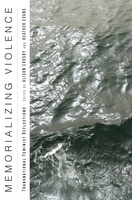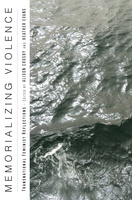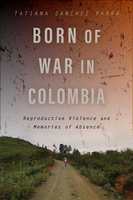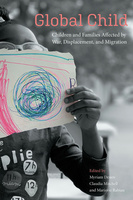Memorializing Violence
Transnational Feminist Reflections
This volume brings together feminist reflections on the transnational lives of memorializations to colonial, imperial, militarized, and state violence. It asks what’s at stake in memorializing amidst and against ongoing harm and injustice produced by white supremacist global capitalist empire.
Memorializing Violence
Transnational Feminist Reflections
This volume brings together feminist reflections on the transnational lives of memorializations to colonial, imperial, militarized, and state violence. It asks what’s at stake in memorializing amidst and against ongoing harm and injustice produced by white supremacist global capitalist empire.
Lifting the Shadow
Reshaping Memory, Race, and Slavery in U.S. Museums
Lifting the Shadow examines how the National Museum of African American History and Culture, Montgomery’s Legacy Museum and Tulsa’s Greenwood Rising are challenging the national narrative on slavery and race by placing racial oppression at the center of American history and linking historical slavery to contemporary racial injustice.
Genocide Studies
Pathways Ahead
In recent years, the world has been shaken by numerous events that have caused and continue to cause massive human suffering, from the COVID-19 pandemic to intrastate and interstate armed conflicts. These crises confound definition and label, but now is the time to think about current manifestations of genocide and those likely to emerge in the future
Genocide Studies
Pathways Ahead
In recent years, the world has been shaken by numerous events that have caused and continue to cause massive human suffering, from the COVID-19 pandemic to intrastate and interstate armed conflicts. These crises confound definition and label, but now is the time to think about current manifestations of genocide and those likely to emerge in the future
The United States and the Armenian Genocide
History, Memory, Politics
This is the first book to examine how and why the United States refused to officially acknowledge the 1915-17 Armenian Genocide until the early 2020s. Drawing from congressional records, rare newspapers, and interviews with lobbyists and decision-makers, historian Julien Zarifian reveals how genocide recognition became such a complex, politically sensitive issue.
Born of War in Colombia
Reproductive Violence and Memories of Absence
Destroy Them Gradually
Displacement as Atrocity
Destroy Them Gradually reframes forced displacement as an annihilatory process, rather than as an event that precedes an atrocity. Displacement crimes are defined as the unique fusion of forced displacement with systemic deprivations of vital daily needs to destroy populations.
Being Human
Political Modernity and Hospitality in Kurdistan-Iraq
Being Human: Political Modernity and Hospitality in Kurdistan-Iraq is a unique work of anthropological hospitality that draws on historical sources, eyewitness testimonies, perpetrator testimony, archival documents, trial records, artwork, novels, and poetry, to engage with one of political modernity’s acts of genocide in Iraq under the Iraqi Baʿth state.










